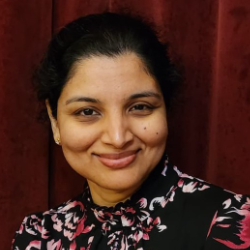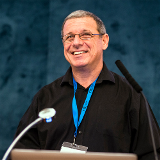Wednesday, July 29, 2020 10:45 - 12:15 PM |
TUT1: Materials Selection and Design for Batteries with High Energy Density, Ultralong Cycle Life, Fast Charging, and Excellent Safety
Detailed Agenda
This tutorial gives an overview on the materials selection and design in order to increase the energy density of batteries, extend the cycle life and enhance the safety significantly. It targets the application from portable electronics, electric
vehicles to grid-scale storage.
Yi Cui, PhD, Professor, Department of Materials Science & Engineering, Stanford University
INSTRUCTOR BIOGRAPHY:
 Yi
Cui, PhD, Professor, Department of Materials Science & Engineering, Stanford University
Yi
Cui, PhD, Professor, Department of Materials Science & Engineering, Stanford University
Yi Cui is a Professor in the Department of Materials Science and Engineering at Stanford University. He received BS in Chemistry in 1998 at the University of Science and Technology of China (USTC), PhD in 2002 at Harvard University.
After that, he went on to work as a Miller Postdoctoral Fellow at University of California, Berkeley. In 2005 he became an Assistant Professor in the Department of Materials Science and Engineering at Stanford University. In 2010
he was promoted with tenure. His current research is on nanomaterials for energy storage, photovotalics, topological insulators, biology and environment. He has founded three companies to commercialize technologies from his group:
Amprius Inc., 4C Air Inc. and EEnovate Technology Inc. He is a Fellow of Materials Research Society, a Fellow of Royal Society of Chemistry and a Fellow of Electrochemical Society. He is an Associate Editor of Nano Letters. He
is a Co-Director of the Bay Area Photovoltaic Consortium and a Co-Director of Battery 500 Consortium. He is a highly proliferate materials scientist and has published more than 400 research papers. In 2014, he was ranked NO.1 in
Materials Science by Thomson Reuters as “The World’s Most Influential Scientific Minds”. His selected awards include: Blavatnik National Laureate (2017), MRS Kavli Distinguished Lectureship in Nanoscience (2015),
the Sloan Research Fellowship (2010), KAUST Investigator Award (2008), ONR Young Investigator Award (2008), Technology Review World Top Young Innovator Award (2004).
Wednesday, July 29, 2020 2:00 - 3:30 PM |
TUT3: Li-Ion Cell Design and Manufacturing: Process, Equipment, and Quality Control
Detailed Agenda
This tutorial will begin with an overview of Li-ion cell design for performance and manufacturability, including contrasting the performance and characteristics of commonly used materials. The tutorial will then lead into a detailed review
of Li-ion cell manufacturing from incoming raw materials through final cell formation, aging and shipment. Manufacturing processes, equipment and production line costs will be contrasted for cylindrical, prismatic and pouch cells. Samples
of commonly used cell components will be displayed. Quality control procedures will be described for each step of the cell manufacturing process, including a discussion on how to optimize cell performance, yields and safety. Attendees
can expect to leave this tutorial with an understanding of how commercial Li-ion cells are designed and produced.
James Kaschmitter, CEO, SpectraPower LLC
INSTRUCTOR BIOGRAPHY:
 James
Kaschmitter, CEO, SpectraPower LLC
James
Kaschmitter, CEO, SpectraPower LLC
James Kaschmitter is the CEO of SpectraPower, which he founded in 2002. SpectraPower operates a battery research facility in Livermore, CA that performs contract energy storage research, consulting and expert witness services for government,
private companies, law firms, startups and investors. Jim has founded, or co-founded, several companies in the energy storage field. He began research in Li-ion batteries in 1989 at Lawrence Livermore National Laboratory (LLNL).
He was co-founder and CEO of PolyStor Corporation starting in 1993. PolyStor is the only U.S. company to have commercially manufactured in high volume in the U.S. all form factors of lithium-ion cells, including cylindrical, prismatic
and polymer. In 1997 Jim founded PowerStor Corporation to commercialize the carbon aerogel supercapacitor that he co-invented at LLNL. PowerStor supercapacitors are now manufactured and sold in high volume by Eaton Bussman. He
founded UltraCell in 2002, which successfully developed the world’s first reformed methanol micro fuel cell. UltraCell’s micro fuel cells are currently manufactured and sold by Brentronics and are deployed with U.S
military and intelligence units, and are in use in combat in the Middle East. Jim holds a master’s degree in Electrical Engineering from Stanford University and has a bachelor’s degree in the Physics Honors Program
from the University of Utah. He holds more than 20 patents in the alternative energy field. He owns, maintains and operates an experimental aircraft and holds instrument and multi-engine ratings.
Wednesday, July 29, 2020 4:00 - 5:30 PM |
TUT5: Solid-State (Ceramic) Electrolyte Materials and Interfaces in All-Solid-State Li Batteries
Detailed Agenda
In this tutorial lecture, I will discuss development of the state-of-the-art solid state Li ion and Na ion electrolytes for all-solid state batteries with emphasise on ionic conductivity and chemical and electrochemical stabilities.
Venkataraman Thangadurai, PhD, Professor and Associate Head (Graduate), Chemistry, University of Calgary
INSTRUCTOR BIOGRAPHY:
 Venkataraman
Thangadurai, PhD, Professor and Associate Head (Graduate), Chemistry, University of Calgary
Venkataraman
Thangadurai, PhD, Professor and Associate Head (Graduate), Chemistry, University of Calgary
Dr. Venkataraman Thangadurai is full professor of chemistry at the University of Calgary, Canada. He is a Fellow of the Royal Society of Chemistry, United Kingdom. He received his BSc from Sacred Heart College in Tirupattur, India in 1989
and his MSc from Muthurangam Government Arts College in Vellore, India in 1991. He received his PhD from the Indian Institute of Science, Bangalore, India in 1999 and did his PDF at the University of Kiel, Germany. He received a prestigious
PDF fellowship from the Alexander von Humboldt Foundation, Bonn, Germany. Dr. Thangadurai received his Habilitation degree from the University of Kiel in 2004 and started his independent career in Calgary in 2005. He received the prestigious
Keith Laidler Award from the Canadian Society for Chemistry (CSC) in 2016 for his outstanding contributions to physical chemistry. His current research activities include discovery of novel ceramic membranes and mixed ion and electron
conductors for all-solid-state batteries, solid oxide cells, and electrochemical gas sensors.
Wednesday, July 29, 2020 6:00 - 7:30 PM |
TUT7: How to Qualify Your Battery Manufacturer to Prevent Cell Failure
Detailed Agenda
The rising demand for Internet of things (IoT) and machine-to-machine (M2M) applications makes battery power an absolute necessity. However, reports about lithium-ion batteries exploding and catching fire continue to draw the public’s attention.
How do you balance the need for power, size, cost, and time-to-market, while still avoiding being the lead story on the evening news? Is it enough to qualify a cell manufacturer according to industry standards? The answer is that the majority
of compliance-based testing is related to abuse tolerance. However, the vast majority of field failures do not occur under abuse scenarios but happen under normal operating conditions due to manufacturing flaws or design and system tolerance
issues that cause internal shorts. Internal shorts are unfortunately not mitigated by safety electronics.
Vidyu Challa, PhD, Consulting Mgr, DfR Solutions
INSTRUCTOR BIOGRAPHY:
 Vidyu
Challa, PhD, Consulting Mgr, DfR Solutions
Vidyu
Challa, PhD, Consulting Mgr, DfR Solutions
Vidyu Challa is a battery expert/consultant and is currently Consulting Manager at Ansys-DfR Solutions. Dr. Challa helps develop battery supplier qualification programs for companies in different industry verticals such as consumer, medical,
aerospace, and industrial segments. She works on a range of battery challenges including supplier qualification, battery risk mitigation, root cause analysis, design reviews, and manufacturing audits. Dr. Challa teaches battery workshops
at several industry conferences and Fortune 500 companies. She spent several years in the battery industry, developing custom battery solutions for IOT and smart medical devices. She has broad-based expertise that includes engineering
technology start-up experience, product development, R&D, and various roles in marketing and business development. She obtained a PhD from the University of Maryland, where her work was focused on the reliability of electronic
components and systems. She is a recipient of the Phi Delta Gamma Award for Interdisciplinary Excellence as well as the Ann Wylie Dissertation Fellowship award. Dr. Challa has published her work in journals, gives invited talks at
conferences and frequently writes blog articles. She most recently published a book chapter on battery failure analysis in Mcraw Hill’s Handbook of Batteries.
Thursday, July 30, 2020 9:15 - 10:45 AM |
TUT9: Improving the Energy Density of Batteries with Silicon-Based Anodes
Detailed Agenda
This tutorial gives an overview on the benefits and challenges of using silicon-based anodes to improve the energy density of lithium-ion batteries. Topics will include: 1) the key challenges in use of silicon-based anodes as well as progress
in implementation of silicon and what can we expect in the future; and 2) the latest improvements in other battery components required to maximize the benefit of silicon-based anodes.
Dee Strand, PhD, CSO, R&D, Wildcat Discovery Technologies Inc.
INSTRUCTOR BIOGRAPHY:
 Dee
Strand, PhD, CSO, R&D, Wildcat Discovery Technologies Inc.
Dee
Strand, PhD, CSO, R&D, Wildcat Discovery Technologies Inc.
Dr. Dee Strand is a Senior Scientist at Wildcat Discovery Technologies. Dr. Strand has over twenty years of experience in materials research, development, and commercialization, primarily in the areas of energy storage and electronic applications.
Prior to joining Wildcat in 2013, Dr. Strand served as a Research Fellow at Dow Chemical, where she was the technical lead in Dow Energy Materials, as well as the Principal Investigator on external research programs with universities
and national labs on battery materials. Dr. Strand also has extensive experience in patent analysis and technical due diligence of new technologies. Dr. Strand completed her PhD in Analytical Chemistry at the University of Wisconsin-Madison,
under the supervision of Professor John Schrag. Her PhD research focused on rheology and birefringence of polymeric solutions. Dr. Strand also holds a Master of Science degree in Chemistry from the California Institute of Technology
and a Bachelor of Science degree in Chemistry from North Dakota State University.
Thursday, July 30, 2020 10:45 - 12:15 PM |
TUT11: Electrochemical Impedance Spectroscopy (EIS) for the Analysis of Battery Materials, Half Cells, and Full Cells
Detailed Agenda
In this tutorial we will introduce electrochemical impedance spectroscopy (EIS) as a valuable tool for the analysis of battery materials, components, and full cells. The tutorial will start with an introduction to the technique. Next we will explain how EIS data is analyzed to determine parameters like the resistance, capacitance, and diffusion in specific components of a battery. We will also explain the conditions for reliable EIS measurements and present tools that will give you confidence in the results. In the third section we will focus on the analysis of separators, active materials, and the SEI layer. Attendees can expect to leave this tutorial with an understanding of the EIS technique and how it can be applied to their battery development activities.
Julia van Drunen, Area Sales & Marketing Mgr, Autolab, Metrohm Autolab B V
Kia Williams, Product Mgr, Electrochemistry, Metrohm USA
Marcel Drüschler, PhD, CEO, Sales & Marketing, rhd instruments GmbH & Co. KG
INSTRUCTOR BIOGRAPHIES:
 Julia
van Drunen, Area Sales & Marketing Mgr, Autolab, Metrohm Autolab B V
Julia
van Drunen, Area Sales & Marketing Mgr, Autolab, Metrohm Autolab B V
Julia has a PhD in electrochemistry from Queen’s University, Canada, and worked for two years as a post-doctoral researcher at the University of Sao Paulo before joining Metrohm Autolab in the Netherlands in 2016. She specializes
in the topics of surface electrochemistry of nickel and platinum, energy conversion and storage, and the corrosion of metals and alloys.
 Kia
Williams, Product Mgr, Electrochemistry, Metrohm USA
Kia
Williams, Product Mgr, Electrochemistry, Metrohm USA
Kia has a PhD in chemistry from the University of South Florida. Kia’s work included analyzing porous carbon materials for energy storage and conversion applications. Kia joined Metrohm in 2018 as the Electrochemistry Product Manager
where she focuses on electrochemical and spectroelectrochemical applications.
 Marcel
Drüschler, PhD, CEO, Sales & Marketing, rhd instruments GmbH & Co. KG
Marcel
Drüschler, PhD, CEO, Sales & Marketing, rhd instruments GmbH & Co. KG
Marcel has a PhD in chemistry from the University of Marburg, Germany. He is an enthusiastic electrochemist with a demonstrated history of developing solutions for challenging tasks in the field of energy storage and conversion as well
as classical electrochemistry. As co-founder and CEO of rhd instruments, he leads a skilled team focusing on creating innovative and intelligent lab equipment as well as on developing powerful EIS data analysis software.
Thursday, July 30, 2020 7:30 - 9:00 AM |
TUT12: The Rechargeable Battery Market: Value Chain and Main Trends 2018-2028
Detailed Agenda
This tutorial will present the 13-year automotive market forecasts from Avicenne and other analysts (micro|Hybrid|P-HEV|EV). Other coverage will include car makers’ strategies and advanced energy storage (advanced lead acid|supercap|NiMH|LIB).
Additionally, LIB design for P-HEV & EV markets (cylindrical, prismatic, pouch|wounded, stacked, Z fold cells) and LIB cell, module & pack cost structure 2018-2028 will be discussed.
Michael L. Sanders, Senior Advisor, Energy, Avicenne
INSTRUCTOR BIOGRAPHY:
 Michael
L. Sanders, Senior Advisor, Energy, Avicenne
Michael
L. Sanders, Senior Advisor, Energy, Avicenne
Mike has significant energy storage materials value chain understanding with an emphasis on lithium ion batteries and systems with 13 years of market knowledge and relationships. Successful program leadership experience with significant
business growth in ventures and existing businesses with a proven track record leading mergers and acquisition team to enter the lithium ion battery materials market. He joined AVICENNE in May of 2016 as a Senior Advisor. Since joining
the AVICENNE team, Mike has been leading the US AVICENNE activity working with many clients holding strategy workshops, validation of growth opportunities, helping clients establish their growth plans in energy storage and establishing
M&A targets/diligence. Before joining AVICENNE, Mike had a very long career with DuPont, his most recent role was the Global Marketing Director – Energy Storage Venture where he developed significant understanding and insights
for the energy storage materials market, device manufacturing and systems while leading global marketing and customer interface efforts to establish programs to enter the $20B energy storage materials market. Executed strategic and
market planning for opportunity evaluation, research, choices and M&A activity for entry into rapidly growing new market. He has a degree in Chemistry from the University of Delaware and is a member of the Society of Automotive
Engineers and Electrochemical Society.
Thursday, July 30, 2020 2:00 - 3:30 PM |
TUT14: Machine Learning and Artificial Intelligence in Batteries
Detailed Agenda
Machine learning (ML) promises to compress the time needed to characterize battery performance, lifetime and safety. By coupling ML with physical models and metrics, that learning can bridge across materials, chemistries and cell designs. This
tutorial will discuss the most popular ML techniques and resources and review recent work in the electrochemical literature. Applications include materials discovery, image recognition for quantitative microscopy analysis, fast charge algorithm
development and life prediction.
Kandler Smith, PhD, Senior Engineer, Energy Storage, National Renewable Energy Laboratory
INSTRUCTOR BIOGRAPHY:
 Kandler
Smith, PhD, Senior Engineer, Energy Storage, National Renewable Energy Laboratory
Kandler
Smith, PhD, Senior Engineer, Energy Storage, National Renewable Energy Laboratory
Kandler Smith leads the battery computational modeling team in NREL's Center for Integrated Mobility Sciences. His energy storage research projects focus on predicting and extending the lifetime of lithium-ion batteries. He also applies
machine-learning techniques for model identification, fast charging, and the computational design and multi-scale modeling of electrochemical/thermal/mechanical-coupled phenomena in lithium-ion batteries.
Thursday, July 30, 2020 4:15 - 5:45 PM |
TUT16: Battery Safety and Abuse Tolerance Validation
Detailed Agenda
Batteries have become daily use components for many applications. New growing segments like EV and Grid storage batteries extend the traditional ordinary battery applications. In the race for energy density, we shouldn’t forget the safety
– as an example the Samsung Galaxy Note 7 battery safety case. Unfortunately, we face daily safety events with injuries and severe damage. This tutorial focuses on portable, stationary and automotive battery safety along the battery
cycle life (acceptance, testing, assembly, use, transportation and disposal). The training incorporates Shmuel De-Leon’s and other experiences on battery safety representing over 26 years of work in the field. The motivation behind the
training is to provide attendees with the knowledge needed to safely handle the batteries in their organization and to support reduction in safety events.
Shmuel De-Leon, CEO, Shmuel De-Leon Energy Ltd.
INSTRUCTOR BIOGRAPHY:
 Shmuel
De-Leon, CEO, Shmuel De-Leon Energy Ltd.
Shmuel
De-Leon, CEO, Shmuel De-Leon Energy Ltd.
Shmuel De-Leon, Founder and CEO of Shmuel De-Leon Energy Ltd., is a leading international expert in the business of energy storage. Prior to founding the company, for over 21 years, Shmuel held various positions as an energy storage, electronic
engineering, and quality control team manager. Shmuel holds a B.Sc. in Mechanical Engineering from Tel Aviv University, and an M.B.A. in Quality Control and Reliability Engineering from the Technion Institute in Haifa, as well as an
Electronic Technician's diploma.